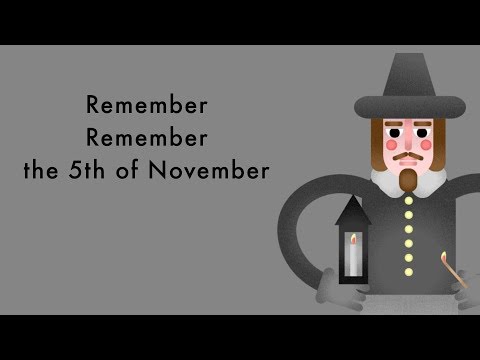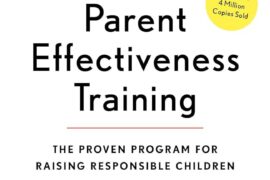Celebrating History with Rhyme: The Family Guide to ‘Remember the 5th of November’ Poem
Hey there, awesome parents! Are you ready to whirl back in time with your little ones and explore one of Britain’s most famous traditions? Well, buckle up because we’re about to dive into the rhythmic and explosive world of the “Remember the 5th of November” poem. This guide is here to help you unpack the history, fun facts, and family activities that will make the story behind Guy Fawkes Night come alive for your children.
What’s All The Fuss About November 5th?
Each year, the night skies of Britain light up with fireworks, but have you ever wondered why? It’s all thanks to a cheeky chap named Guy Fawkes and his infamous Gunpowder Plot of 1605. The 5th of November has since been etched into British history, and its remembrance has been immortalized through a catchy poem that’s been passed down through generations.
Before we jump into the verses, it’s important to understand the historical context. So, here’s a quick recap for you and the youngsters: Guy Fawkes was part of a group of English Catholics who planned to blow up the Houses of Parliament and kill King James I, hoping to end the persecution of Catholics. But, spoiler alert, they were caught before they could go through with their plan!
The Poem That Keeps History Alive
The ‘Remember the 5th of November’ poem is more than just words—it’s a piece of history that carries the echo of barrels of gunpowder and whispers of a society on the brink of change. This is the rhyming tale that turns history into an adventure:
Remember, remember, the fifth of November,
Gunpowder treason and plot.
We see no reason
Why gunpowder treason
Should ever be forgot...
But wait, it continues! Yes, this poem has more stanzas, each telling a bit more about the plot and the fate of Guy Fawkes. Teaching your children this little piece of poetry is not just for memorization—it’s a gateway to discussions about right and wrong, the complexities of history, and the importance of traditions.
Bringing the 5th of November to Life
Now that you’ve had a taste of the past, let’s talk about bringing this historic event to life for your kids. Engaging your family in storytelling, crafts, and even tasty treats themed around the 5th of November can create lasting memories and a deeper understanding of this British holiday.
But it’s not just about fun and games—there are valuable lessons here too. Discussing the ethical dimensions of the Gunpowder Plot sparks critical thinking. Was Guy Fawkes a hero or a villain? What happens when people believe so strongly in a cause that they’re willing to use violence? These are the kinds of questions that can lead to profound conversations with your children.
Unpacking the Poem: A Line-By-Line Adventure
Let’s break down the poem together, and unearth the stories behind each line. With every verse, you’ll discover pointers on how to discuss the historical significance with your kiddos and interesting tidbits to keep them hooked. Plus, we’ll sprinkle in some creative activities to make learning about the 5th of November as fun as it is educational!
Starting with the iconic opening line, “Remember, remember, the fifth of November,” prompts a discussion about the importance of remembrance and history. Why do we remember certain events? What makes them significant? It’s the perfect lead into a history lesson that feels more like story time than school.
Stay tuned, as we’re about to jump into the heart of the poem, explore the Gunpowder Plot in all its fiery detail, and keep the history alive and well for generations to come. The dramatic tale is not just a bedtime story; it’s a slice of the past served with a spark of fun and a blast of knowledge. So take your children’s hands, and let’s step together into the smoky corridors of the 17th century!
Remember, it’s not just learning – it’s making memories that will twinkle like the fireworks on a clear November night. The journey through the “Remember the 5th of November” poem is just beginning, and what lies ahead is a thrilling ride through history and tradition that your family will cherish forever.

5 Things Every Parent Should Know When Sharing the “Remember the 5th of November” Poem
1. Historical Sensitivity and Accuracy
As you introduce your children to the “Remember the 5th of November” poem, it’s essential to provide an age-appropriate explanation of the historical context. Be ready to explain the significance of Guy Fawkes and the Gunpowder Plot in a way that’s sensitive to the past and accurate, without glorifying violence or oversimplifying complex historical events.
2. Cultural Relevance and Traditional Observances
Navigating the cultural importance of this day can be both fun and educational. Share with your children why Guy Fawkes Night, also known as Bonfire Night, remains a significant event in the UK, complete with bonfires, effigies of Guy Fawkes (‘the Guy’), and fireworks. Use this opportunity to teach them about respecting different cultures and traditions.
3. The Ethical Dimensions of the Plot
Discussing the ethical considerations surrounding the Gunpowder Plot offers a platform for deeper conversations about morality, justice, and the ramifications of actions. Encourage your children to think critically about the motivations behind the plotters’ actions and the subsequent response by the authorities.
4. Remember the Poem, Remember the Details
While reciting the poem, focus on its historical significance. Each stanza can be a starting point for a mini-history lesson. For instance, the line “A penny for the Guy” can lead to discussing how children used to (and sometimes still do) make effigies of Guy Fawkes to ask for pennies, which teaches about historical and contemporary traditions.
5. Safety First During Celebrations
If you plan to attend or host a bonfire and fireworks event to honor the tradition, prioritize your family’s safety. Teach your children about fire safety and ensure they understand the importance of keeping a safe distance from fireworks and bonfires. It’s also a fantastic chance to highlight the work of fire service professionals and first responders.
Activities and Crafts
Augment your recitation of the poem with some hands-on activities. Create sparkler safety posters, make a Guy Fawkes hat together, or even bake some ‘plot’ cookies. Combining history and crafts makes the narrative of the Gunpowder Plot tangible and memorable.
Recipes and Treats
Involve your kids in making special treats commonly enjoyed during Guy Fawkes Night. Cooking up some toffee apples or creating bonfire cupcakes not only adds to the festivities but also provides a delightful sensory experience that ties into the theme of the day.
Interactive Education
Consider using multimedia resources such as documentaries, animated shorts, or interactive websites to illustrate the historical event in a format that resonates with children today. Visual and interactive content can make the complex tale of the Gunpowder Plot more accessible to younger audiences.
By incorporating these elements into your family’s journey through the Remember the 5th of November poem, you’re sure to spark a keen interest in history while enjoying quality time together. Explore these rhymes and tales, and let the sparks of curiosity fly as high as the fireworks on a crisp November evening.
And there you go, dear parents! You’re now equipped with the knowledge and tools to make the “Remember the 5th of November” poem a memorable and informative experience for your whole family. Dive into the past, celebrate responsibly, and enjoy the illuminating discussions and activities that await. Happy Guy Fawkes Night to one and all!
See more great Things to Do with Kids in New Zealand here. For more information see here
Disclaimer
The articles available via our website provide general information only and we strongly urge readers to exercise caution and conduct their own thorough research and fact-checking. The information presented should not be taken as absolute truth, and, to the maximum extent permitted by law, we will not be held liable for any inaccuracies or errors in the content. It is essential for individuals to independently verify and validate the information before making any decisions or taking any actions based on the articles.




